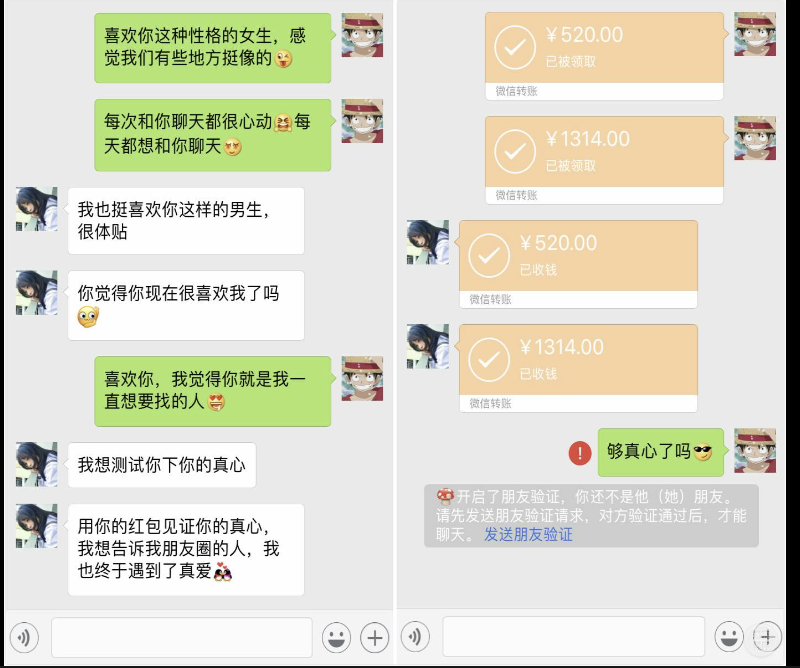Nowadays in the development of society the emergence of social software has changed the way people used to communicate. Traditional face-to-face communication still exists, but now people can communicate with friends, family and strangers more easily. Social software offers text, pictures, audio and video so that distance is no longer an issue. People can interact with others anytime, anywhere, and new social software has also affected social dynamics and privacy, leading to virtual socialising replacing real socialising. Social software has provided people with a variety of communication options, but it has also brought new challenges and implications.

WeChat (WE CHAT), one of China’s leading social networking platforms, is a gateway for consumers. Its main use is to give citizens a new way to socialise, allowing them to message their friends and family and share their lives with their friends on the platform, but WeChat is more than just a communication platform. In China, it is also a social media platform for people’s daily lives; WeChat encourages people to send their own events on their “Friend Circles”, and they can set their own avatars, personalised signatures, and names.

With the update of the software WeChat has introduced the payment feature, a convenient payment method widely used in China and elsewhere. It allows users to bind their bank cards and credit cards with their WeChat account to perform various transactions and payment operations. The following are all major payment methods in China in recent years.
The first one is code payment, which allows you to use WeChat to scan a merchant’s QR code to make a payment, usually in offline shops and restaurants. Then there is the money transfer function, which allows users to send red packets, transfer money or request money from their friends in their friends list for personal money (fee-free) exchange. There is also online shopping, which allows you to place orders and pay for purchases online from merchant apps on WeChat. This feature includes public payments can pay for cinema tickets, water and electricity bills at home, your own mobile phone bill and other public services.
The success of WeChat Pay is due to its convenience and the combination of other WeChat features that allow people to meet multiple needs on a single software, thus driving the popularity of electronic payments in China.

As people increasingly rely on their mobile phones for daily communication with friends and family, a concerning issue arises: the lack of personal data security. This vulnerability opens the door for criminals to exploit trust and deceive individuals. Scammers often impersonate someone’s friend or acquaintance, arranging meetings or conversations under false pretenses. Over time, these deceptive interactions can lead to a false sense of intimacy or trust.
These online relationships can evolve into cybersex or various forms of emotional connections. Exploiting this emotional bond, criminals take advantage of the victim’s trust to carry out scams, often involving requests for money or other forms of financial deception. Once they succeed in obtaining funds, these scammers swiftly disappear, leaving victims with little recourse for tracking or holding them accountable.
The anonymity offered by social media and online platforms allows individuals to escape the social pressures and biases they might face in real life. This sense of freedom attracts people seeking social interaction and emotional connections, especially those who may feel lonely in their offline lives. However, the use of pseudonyms and the lack of verification in online communication can be exploited by unscrupulous individuals to perpetrate scams, preying on the vulnerable for financial gain and other fraudulent activities.
That is why I think that identity construction in the digital world is a complex and dynamic process, influenced by personal choices, by culture and by the constant development of digital technologies and online platforms. It has both positive and negative side as it provides opportunities for people to express themselves, connect and be empowered, but it also raises issues of privacy, truthfulness and the possibility of online deception.
References
1.社交媒体让我们的交流更加平等了吗?_传播 (2021) _传播. Available at: https://www.sohu.com/a/483268045_121124373 (Accessed: 07 November 2023).
2.AsiaPac (no date) 微信廣告代理商|AsiaPac 香港商亞思博數位媒體, AsiaPac. Available at: https://www.asiapacdigital.com/zh-cht/wechat-advertising-agency (Accessed: 07 November 2023).
3.How to use wechat pay with International Bank Cards? (2023) Marketing China. Available at: https://marketingtochina.com/how-to-use-wechat-pay-with-international-bank-cards/ (Accessed: 07 November 2023).
4.Gupenpen (2018) 听说总有「陌生美女」加你微信?别轻信,这可能是经典的诈骗案例: 亲儿子, 爱范儿. Available at: https://www.ifanr.com/minapp/1142885 (Accessed: 07 November 2023).


I think your blog is very well written and reading it made me realise the importance of protecting my information in the online world
In today’s digital age, more and more people are storing personal information on the Internet. However, with it comes an increasing threat to personal privacy. Personal privacy leakage may not only lead to economic losses, but also cause lasting damage to an individual’s reputation and security. Therefore, protecting personal privacy has become crucial.